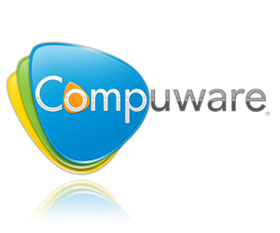Regulation and mobile money services across borders
With an estimated 300 million mobile phone subscribers in Africa, USA and UK, development agencies have noted that of the new technologies offering improvements to remittance services and reductions in transaction costs, mobile phones hold the greatest promise for Africa.
Remittances, the money sent home by migrant workers, has gained much attention recently as an increasingly important source of income to developing countries, with the potential to assist in poverty alleviation and as a contributor to stimulating development.
A large proportion of these funds are sent using informal channels. This is not ideal, neither for the person remitting nor for economic growth as these channels often have low levels of security and unreliable timing.
These remittances also fall outside of the regulatory monitoring scope, more particularly money laundering and exchange control monitoring. It is generally accepted that the formalisation of cross border remittance flows is an important development goal.
However, despite the need for formalisation, stringent regulation is a barrier and a restriction to the expansion of cross border remittance services using mobile phones. These regulatory requirements impact the cost of providing remittance services by financial institutions. The cost of remitting low values is particularly impacted and is a disincentive to using banks as a channel for remittances.
The South African regulator has recently taken steps to identify these regulatory barriers and how these barriers contribute to the cost of remittances. Following this, there appears to be a willingness to consider regulatory amendments to enable cross border money transfers, particularly to South Africa’s neighbouring countries.
The challenge is to maintain financial integrity that understands the money laundering and terrorist financing risks as well as the need for exchange control monitoring, and on the other hand enabling financial access (identified by the World Bank as a key to development in developing countries).
FNB already has a mobile phone based cross border product; this product allows an FNB customer to send airtime, using a mobile phone, to a recipient outside the South African borders. Nevertheless, following the growth in uptake of the FNB eWallet product, as well as other mobile money services in South Africa, there is an increasing demand for mobile money transfer services to expand across the borders of South Africa, enabling the easy transfer of money from South Africa to other African countries.
The environment on the African continent is characterised by international, regional and national migration. Most of the countries in Southern Africa are both migrant-sending and migrant-receiving countries, largely as a result of increased urbanisation patterns in these countries.
One of the most important migration routes, according to a 2009 World Bank report, is the Malawi-Mozambique-South Africa corridor. South Africa, Zambia, Angola and Namibia now host a significant migrant population. South Africa is the destination for 86% of all migrants from Botswana, Lesotho, Mozambique, Swaziland and Zimbabwe. The World Bank report estimates that 2, 3 % of the South African population are immigrants.
This study however, does not take into account undocumented migrants. Following later studies, which have attempted to identify the undocumented population, the estimated number is around 6% of the population. A study conducted in 2010 showed that 7 % of migrants used the post office to send money, 26 % used a friend or relative and 47 % took the money themselves.
These migratory flows create a demand for low value, short-distance remittance sending services. The increased penetration of the mobile phone provides accessibility, and combined with the benefit of speed, safety and lower cost, the use of the mobile phone for cross border remittances holds promise for meeting this demand.
William Hoffman of the World Economic Forum recently noted that, ‘The potential for the mobile platform to inclusively transform the financial lives of individuals and the structures of industries is unquestioned.’
However, in order to succeed in meeting the needs of the migrants following this increased movement of labour across borders in the region, there is a need for the various African regulators to review their cross border remittance regulation. Allowing for a more flexible regulation of mobile money across borders will foster expansion and provide easier access to banking services to a wider market.
It is without a doubt that we are in the midst of a fast-growing and innovative industry; we are seeing a convergence of mobile banking and mobile payments and the rise of mobile commerce across Africa. With this in mind, there’s a definite and possibly urgent need for a review of the current regulations on low value cross border remittances.
At the same time, to allow for a more effective and efficient transfer of money across the African borders, the banks need to review the current approach towards low value cross border remittances to enable entry into this market.
With an annual mobile phone market growth rate of 65% within the continent, which is twice the global average, the potential for cross border services is immeasurable. A more efficient regulatory framework facilitating cross border remittances, using services such as the FNB eWallet, may be key to national and regional economic development of countries in Africa.
By Kim Dancey, Strategic Legal Advisor, FNB eWallet Solutions




